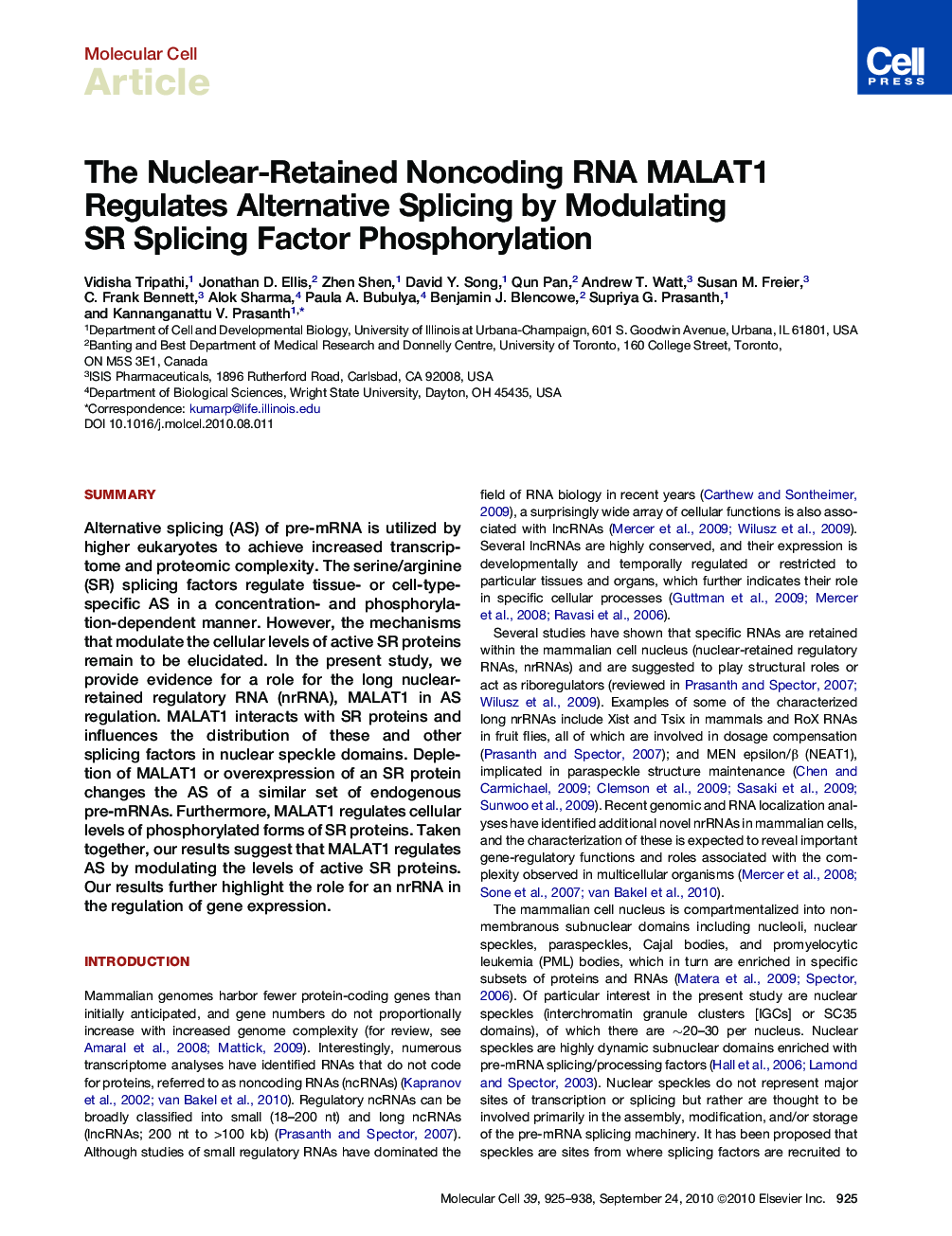| Article ID | Journal | Published Year | Pages | File Type |
|---|---|---|---|---|
| 1996946 | Molecular Cell | 2010 | 14 Pages |
SummaryAlternative splicing (AS) of pre-mRNA is utilized by higher eukaryotes to achieve increased transcriptome and proteomic complexity. The serine/arginine (SR) splicing factors regulate tissue- or cell-type-specific AS in a concentration- and phosphorylation-dependent manner. However, the mechanisms that modulate the cellular levels of active SR proteins remain to be elucidated. In the present study, we provide evidence for a role for the long nuclear-retained regulatory RNA (nrRNA), MALAT1 in AS regulation. MALAT1 interacts with SR proteins and influences the distribution of these and other splicing factors in nuclear speckle domains. Depletion of MALAT1 or overexpression of an SR protein changes the AS of a similar set of endogenous pre-mRNAs. Furthermore, MALAT1 regulates cellular levels of phosphorylated forms of SR proteins. Taken together, our results suggest that MALAT1 regulates AS by modulating the levels of active SR proteins. Our results further highlight the role for an nrRNA in the regulation of gene expression.
► Nuclear speckle-localized MALAT1 interacts with SR splicing factors ► MALAT1 influences the nuclear speckle distribution of splicing factors ► MALAT1 depletion changes alternative splicing of endogenous pre-mRNAs ► MALAT1 regulates the cellular levels of phosphorylated SR proteins
